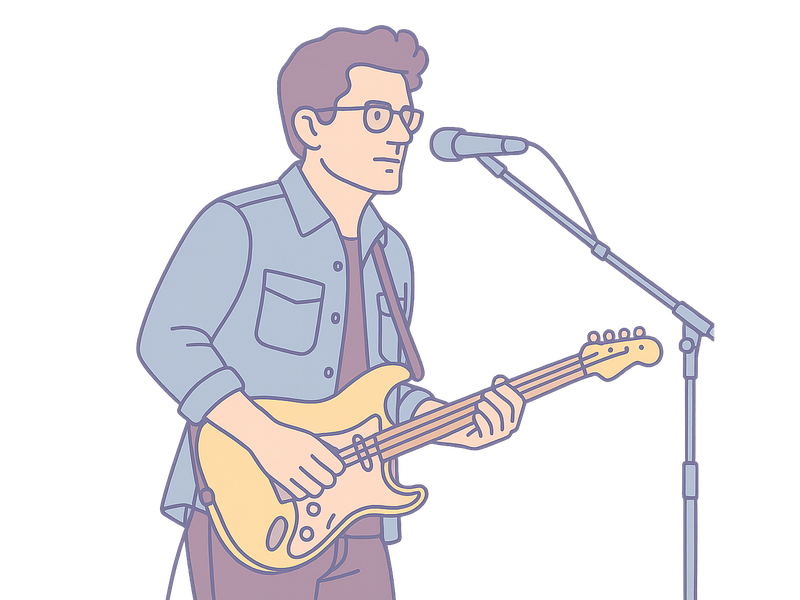Expert Humility
When ‘I Don’t Know’ Is the Smartest Answer

At Smudge, we often talk about the balance between generalists and specialists—how deep expertise and broad adaptability work together to solve complex problems. But how do you recognize true expertise?
In a world that often rewards quick answers and strong opinions, it’s easy to mistake confidence for competence. The best specialists—the ones you want on your team—tend to approach challenges with humility, acknowledging complexity rather than rushing to certainty.
Expert Humility
The Music of Mastery
There’s something fascinating about watching a true expert at work. Not just someone who sounds like they know what they’re doing, but someone who genuinely carries the weight of experience, the patience of practice, and the humility to know the limits of their expertise.
One of the most memorable times I learned this lesson was at a piano.
I studied piano performance up to university level, spending hours each day refining technique, memorizing pieces, and pushing myself to improve. After finishing my degree, I was preparing for a concerto competition—one of those moments where you put everything you have into a single performance. In the weeks after I finished playing, my piano teacher, an accomplished musician in his own right, sat me down.
“There’s no path for you as a professional pianist.”
I remember being in tears as the weight of his words sank in. He wasn’t being cruel; he was being honest. He had seen my dedication, worked with me, and invested in my growth. But he also understood the reality: at my age, for where I was at, I couldn't outwork those who were already far better than me. And no amount of passion or practice could change that fundamental truth.
That’s what expert humility looks like. Real experts don’t just tell you what you want to hear. They tell you what you need to hear.
The Danger of Confidence Without Competence
If you’ve ever been around musicians, you’ll know that confidence doesn’t always equal skill. I’ve seen plenty of players who could talk about music beautifully, but when they played, it was clear they didn’t have the depth of experience to back it up.
The same thing happens in business. Sometimes, the people who sound the most confident—who say things like, “Oh, that’s easy, we do this all the time”—are the ones who are least equipped to actually handle complexity. They gloss over details, promise certainty where none exists, and avoid the nuance that true experts acknowledge.
When you work with a genuine expert, they rarely give you an instant, confident answer. Instead, they pause. They think. They ask questions. They might even say, “That’s tricky—I’ll need to put some thought into it.”
At Smudge, one of our technical leads, Mike Nicholls, does this often. When I bring him a tough technical problem, I don’t always get an immediate, confident response. Instead, I see him starting to think about it, and he’ll say something like, “Yeah… that’s an interesting one.”
What I know from experience is that Mike will come back later with what I was looking for. Because real experts don’t rush to answers—they work through the complexity first.
Knowing What to Say (and What Not to Say)
A number of years ago, I was pitching some of our work to a senior leadership team. I had been working on the project for months and was excited about all the details—the why, the how, the impact. Before the meeting, one of our partners at One NZ, Murray Osborne, gave me some advice:
“Reuben, keep it short. Just the top level. We don’t need the detail.”
I understood what he was asking, and I felt multiple pulls. I wanted to deliver simplicity, but I also knew how much time, effort, and practice it would take to make sure I captured the true essence of the idea, and I didn’t have that long before presenting.
It reminded me of something musicians do well: playing all the right notes isn’t the same as performing well.
Expertise isn’t about overwhelming people with everything you know. It’s about knowing what to share, when to share it, and how to communicate it effectively.
The Highest Form of Expertise: Knowing What You Can’t Control
Late last year, my mother-in-law passed away during heart surgery. After 10 hours in the operating room, the lead surgeon came straight out to speak with our family, walking us through everything that had happened. A couple of months later, the hospital arranged a follow-up session with the key medical team—surgeons, a nurse and cardiologist—all sitting with my wife’s family to answer any additional questions we had.
They had done everything they could. And yet, the outcome was still one that none of us wanted.
This experience exemplified expert humility to me. Knowing that even with all your skill, preparation, and effort, sometimes things don’t go the way you hoped. And yet, instead of hiding from that, this team turned up, answered every question, and gave our family the peace of mind that they had done the everything they could.
Final Observation: The Best Experts Keep Practicing
At the 40th anniversary of PRS Guitars, John Mayer played a few songs and then turned to the audience—an audience full of musicians—and said:
“Many of you play guitar better than I play guitar. It’s nerve-wracking to play before you. Thank you.” - I think it’s worth watching for the tone.
That’s expert humility. Mayer understands that no matter how good he is, there’s always more to learn. He sees the gap between where he is and what’s possible.
That’s what my piano teacher helped me see. In the surgeons who sat with us after my mother-in-law’s passing. In the best software professionals I work with every day.
Look for the humble experts—the ones who know what they’re doing but are still putting in the work to hone their craft. They’ll be your best, most committed guides.
And if you’re the expert? Keep practicing.
